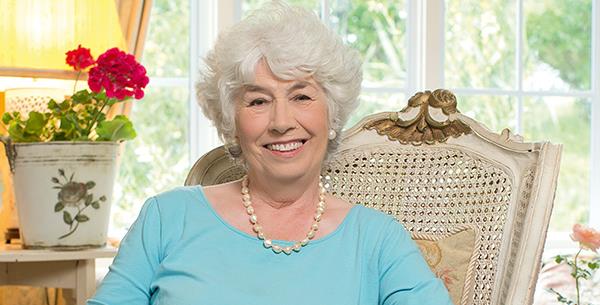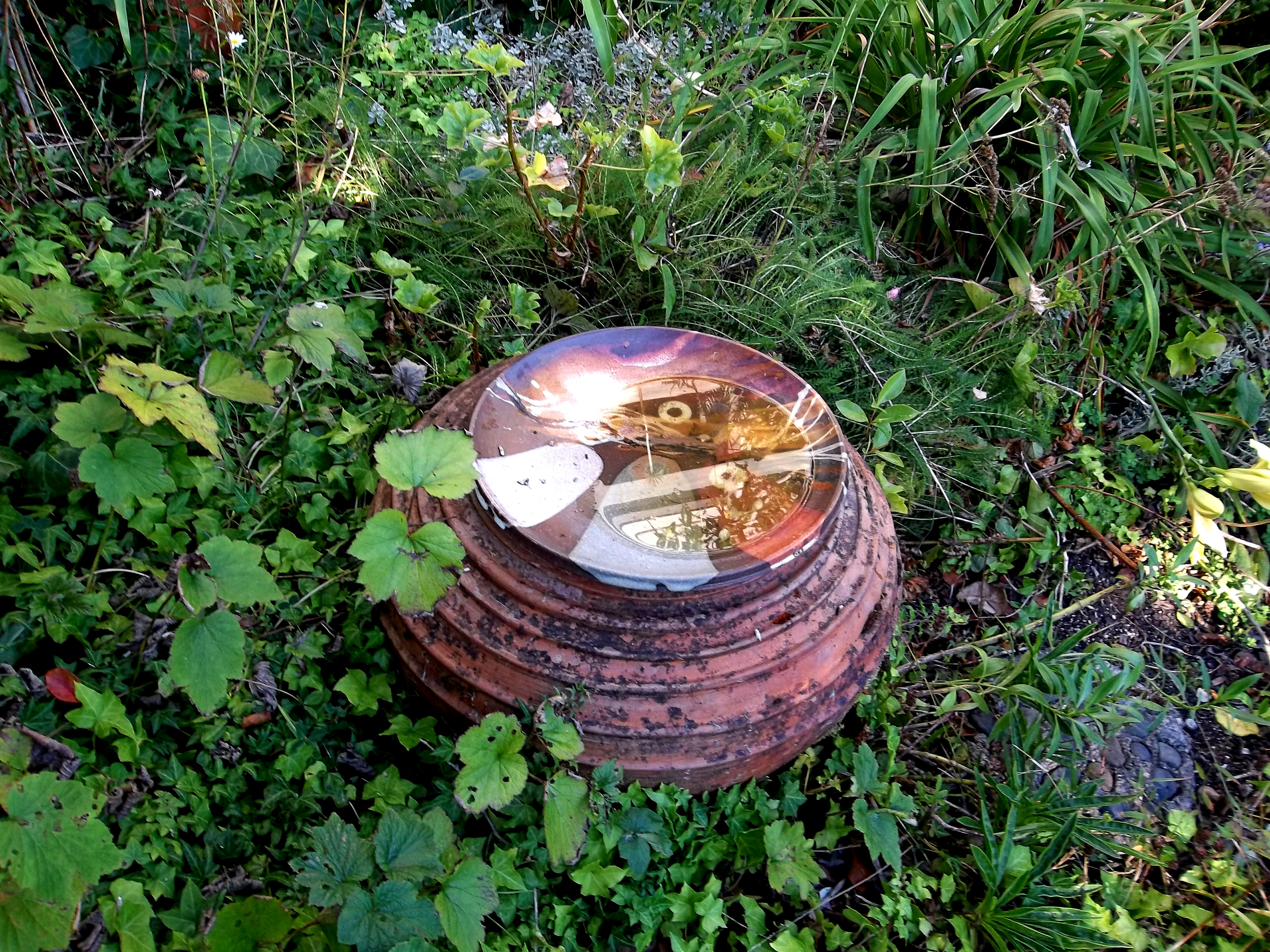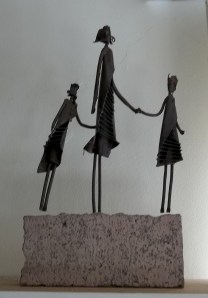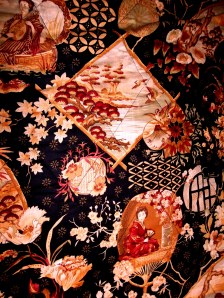
This is a story about three women who were described as the Angel of Arnhem, the Virtuous One and Queen of Okoyong.
Kate ter Horst was called an angel by those who received her heroic care under fire. The mother of five children, she lived happily with her husband Jan at Oosterbeek, near Arnhem, where part of the Allied assault, Operation Market Garden took place in September 1944.
As the battle for Arnhem Bridge intensified, an army doctor by the name of Randal Martin knocked on Kate’s door and asked if he could bring some lightly wounded men there for shelter, as their field hospital was running out of room. With her husband away helping the Dutch Resistance, Kate agreed, and putting her children safely in the cellar with their nanny, she opened her doors to the wounded, the men of the British Parachute Brigade.
They never stopped coming as the battle raged, until over three hundred wounded and dying were crammed into every available space, where there was no room to step anywhere, she told her children afterwards. When the house became a target, she improvised water for her unexpected house guests siphoning off water from the boiler and the toilet cistern. But mostly she comforted and supported the wounded. Talking to them, reading the Bible and prayers to those who wished, holding their hands when they died. She infused the house with calm, and loving kindness.
Liv Ullman plays Kate in the film, ‘A Bridge Too Far’, with great soul and sensitivity, so that one knows how much the shattered soldiers loved her, and clung to her steady, gentle kindness. “She brought light into darkness,” a wounded general said afterwards. Over three hundred men finally lay on the polished oak floors, on the stairs, on sofas and make-shift beds. The young English doctor was wounded twice as relentless sniper fire targeted the house and explosions rocked it. Fifty-seven dead soldiers were hastily buried in the garden, and when the Germans finally marched in, Kate and her children were expelled from their home, walking away with nothing.
They called her the Angel of Arnhem and never forgot her. When the war was over, those who survived and the families of those who didn’t, came back to thank her and to be with her once again. Dr Randal Martin, like some others, became a life-long friend, and when Kate was killed in a car accident in 1992 and her husband badly injured, Randall flew over to Holland to care for him. They were awarded an MBE by the King, and when Kate died, the British Parliament stood to honour and pay tribute to her.
Her daughter Sophie continued to live in their re-stored house. She said: “I cherish this house and feel privileged to live here. It’s where British men gave their lives to free Europe. I’ve lived with their memories all my life. I think of them all the time.”
(of the 10,000 men who fought at Arnhem, only 2,400 returned). Her mother turned the garden into a shrine to the young men who had died there, and when her husband became mayor, he started the custom of all the children in the town being responsible for one grave, which they tended and decorated with flowers since the families of the dead were too far away. It continues to this day.
Gladys Aylward was also involved in a war – the terrible conflict between the Chinese and Japanese. A house-maid before she had saved enough to pay for the cheapest fare available to go to China – she had two pounds and nine pence when she set out on the dangerous journey overland to become a missionary. Missionaries have had a bad rap over the years, along with the British Empire (which abolished suttee – the burning of widows on their husband’s funeral pyre, helped abolish foot-binding in China and tackled infanticide in parts of Africa)
When thirty- three year old Gladys arrived in China she joined a seventy- three year old missionary, Jeannie Lawson, in a remote part of the country, where the two women restored a ruined haunted hotel, and made a warm welcoming stop for mule trains… while they ate their food, one of the women would tell them Bible stories, in the hope the muleteers would pass them on! When the elderly Jeannie died from a fall, Gladys took over on her own. She overcame local hostility and prejudice against all ‘foreign devils’, learned the language, became a Chinese citizen, quelled a local prison riot and obtained decent conditions for the prisoners.
She became an official employee of the government to abolish the barbaric practise of foot binding, having great success in remote regions in spite of the resistance of the men. (footbinding involved breaking the toes and the instep, binding the toes to the sole very tightly and creating a foot of four inches, on which women could hardly hobble and were trapped at home. They often fell and broke their bones which became more brittle than unhandicapped women’s. It was agonising, and considered a sign of beauty) At the same time Gladys was adopting orphans whenever they came her way! The locals loved her and gave her a Chinese name – Virtuous One.
She ended up at the outbreak of war having to lead a hundred orphans of all ages to a safe town, away from the Japanese, who were destroying all the towns and villages, and killing everyone.
Her epic trek over the mountains with the children for twelve days, almost starving, sleeping in the open, trudging through rain and up and down steep mountain passes was the subject of a film, ‘The Inn of the Sixth Happiness’ a distorted Hollywood account which included a fictional love affair, which the modest Gladys hated.
At the end of the journey she collapsed with typhus and fought for her life, before going back to work with her beloved orphans. With the coming of Mao she had to escape China, and she ended her life caring for orphans in Taiwan. Not bad for a four foot ten inch London parlour maid.
Mary Slessor was a Scots girl, who from the age of eleven had to work to help support her family, who were unsupported by an alcoholic father. She worked in a weaving mill until she was twenty eight, when she felt able to leave home, and sailed off to Africa to be come a missionary. She went to Calabar in Nigeria, and after a short time at the mission, she set off into the unknown interior of the great continent.
Back in 1878, this really was darkest Africa, with many hostile tribes, particularly brutal forms of slavery, constant tribal wars and barbaric and brutal customs which made everyone’s life a fragile dangerous ordeal. Other missionaries who had tried to spread their message there had been killed. Undaunted, Mary learned Efik, the local language, and bringing nothing with her but love and a desire to help the oppressed, she set off.
She spent the rest of her life exploring and serving this part of Nigeria and with sheer force of personality taming murderous chiefs, curbing the power of witch- doctors, trying to end the practise of chaining the wrists of a suspect and pouring boiling oil over them -if he was innocent, he would not be harmed! She rescued slaves condemned to death for trivial mis-demeanours, and saved the lives of many women from being killed for irrational reasons, stopped the practice of finding someone to blame when someone died and taking their life too, put a stop to all the chief’s wives and servants being killed when he died, to go with him, and everywhere she went, building her own house, chopping logs and fixing roofs, and always having her adopted children with her.
Her most powerful achievement was to end the killing of twins, whose parents were deemed cursed by their communities and the mother driven off to die in the jungle and the father considered a ‘devil child’. She scoured the dense undergrowth whenever the grapevine told her twins had been born and rescued hundreds of the abandoned babies, nursed their broken mothers back to health, tried to re-unite the parents, and above all, worked on the chiefs to get them to stop this cruel practice. She cared for the babies, finding homes for them and adopted four girls and a boy herself.
The people adored her for the loving and unstinting energy she gave to improving their lot and trying to change things for the better. Mary had contracted malaria soon after her arrival in Nigeria, and struggled with it for all the years she worked in Africa until she died a sixty- seven in 1915.
But until then she never gave into it, and battled through fever, debilitation and pain to the rescue of endangered women, or to stand in the path to stop an invading tribe attacking. Though she was a timid woman, hiding in doorways if she saw a dog in her native Dundee, here in Africa, using prayer to sustain her she showed such courage that all, European and Africans alike, were awed by her achievements. Her focus was on teaching Christianity, settling disputes, encouraging trade, establishing social changes and introducing Western education. She changed many lives simply by her example.
She had an extensive correspondence with children back in Scotland, and even with the crippled son of hotel owners in the Canary Islands. Knowing the labour of hand writing long letters, this reaching out with loving encouragement to these children was an extraordinary service on top of all her other self-appointed duties.
The British Government in Nigeria cooperated with Mary’s efforts to stop the killing of twins and passed a law against it. They also made Mary the local consul with the power to preside as a magistrate and keep the peace in her area. By now, she was known by all, as the Queen of Okorong, for all the tribes and chefs deferred to her and brought their disputes to her, knowing she would resolve their problems with fairness and kindness as she knew their ways and customs. Everyone trusted her.
Mary refused a salary for this important post saying she was serving God, not the government, so the government paid her salary to her local mission. The frail missionary became beloved by all who knew her, and though George V honoured her with the award of the Order of St John of Jerusalem, she valued far more the love of her adopted children and all those she worked with and served. When she died, the colonial authorities gave the red-haired blue-eyed Scottish girl from the Dundee slums the equivalent of a state funeral
All these women brought light into darkness, and they are an inspiration. Gladys and Mary and Kate are well-known, but at the same time, in each place in the world where they laboured, there were many other women (and men) bringing light, and kindness among people who needed hope; people struggling against centuries of oppression, poverty and the cruelties inflicted by the powerful, as well as by the tragedies of war.
The tapestry of the past is composed of dark and light, but by looking at the light, and acknowledging it, instead of focusing only on the dark, we can see how the light has showed us the way to a more just, more compassionate present. The light can inspire and lead us out of the darkness of injustice or cruelty into the possibilities of a fairer kinder future.
Dale Carnegie had a point when he said two men looked out from prison bars, one saw the mud, the other saw stars. These women were stars and their lights still shine for those who choose to see it.
Food for Threadbare Gourmets.
Not for the first time, Nigella Lawson has enhanced my life! I read her tip to cook chips in COLD oil. This looked too good to be true. But using a deep saucepan, instead of a frying pan, I tipped chips into cold vegetable oil and left them to cook. Miracle – crisp outside, soft and fluffy inside, and they took half the time and no hot oil spattering. Next time I tried with kumara/sweet potato as well – just as good but they cook a lot quicker.
So then, in a separate pan, I tried chopped onion in cold oil. The recipient, an aficionado of fried onions, said they were the most deliciously crisp of any I had cooked before. I tip them onto kitchen paper, to dry out a bit of the oil, but they seem to be less oily than ordinary chips. Must be vegetable oil, so I use grape-seed.
Food for Thought
What is civilization? I answer, the power of good women.
Ralph Waldo Emerson








